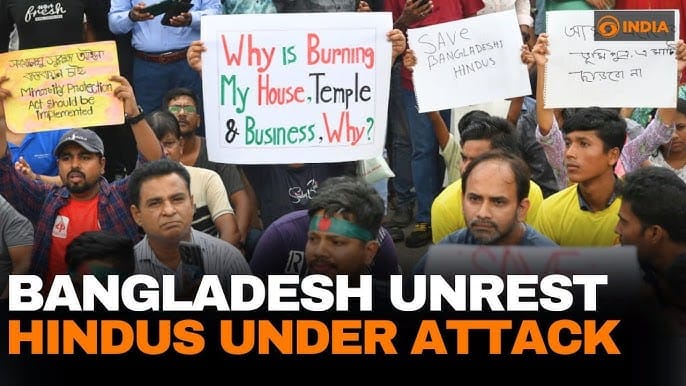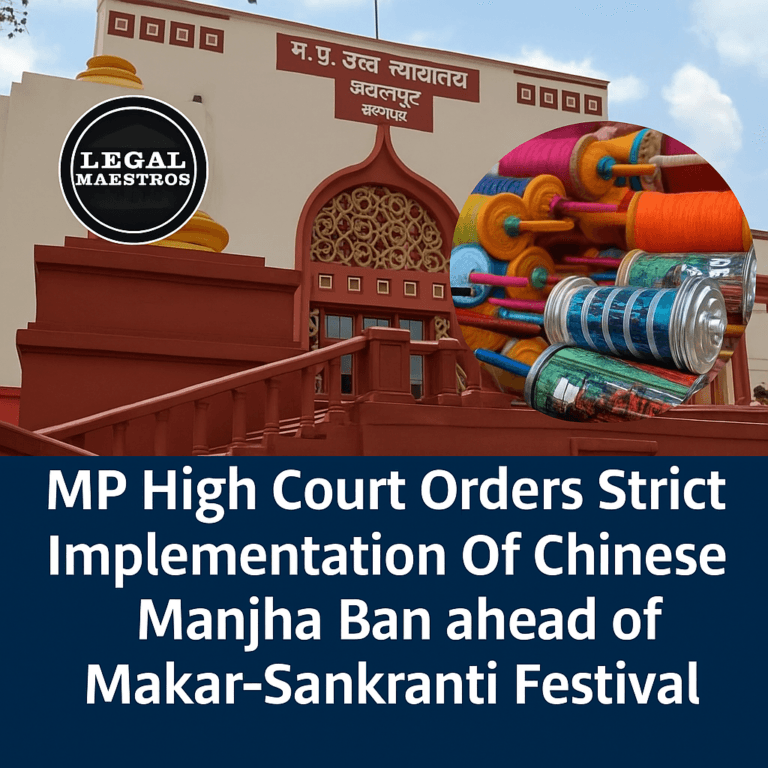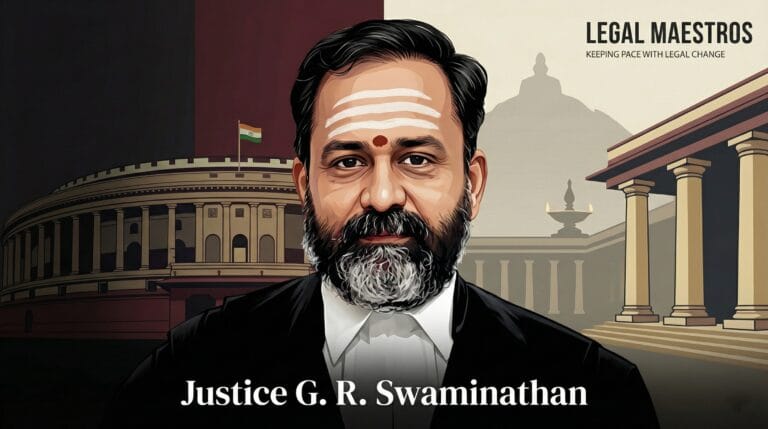
SC Quashes Bail in ₹6 Crore Cheating Case, Mandates Training for Delhi Trial Judges
Supreme Court Steps In, Overturns Bail
In a very strong statement of judicial review, the Supreme Court of India has set aside a bail order given by a Delhi trial court in a high value cheating case amounting to 6 crores. The Supreme Court was highly critical of how the bail was awarded, as the decision made by the trial judge was highly unsound and illogical. This is an important intervention because the Supreme Court will not usually interfere with discretionary determinations such as bail without gross miscarriage of justice.
The case is about a man who has been charged with a major economic crime of six crore rupees in form of a six crore rupees of fraud. The victim of the alleged cheating was the complainant, who appealed the bail order, citing that the trial court had not paid attention to the seriousness of the alleged crime and risk of evidence manipulation by the accused. The appeal followed the judicial system till the Supreme Court who made decisive and critical reviews to the determination made by the lower court.
The fact that the bail is canceled sending the accused back to jail only supports the severity with which the highest court takes economic crimes. It sends a strong message that these incidences which may affect the economic well-being of individuals and economy cannot be taken lightly. The case mentions that the lower courts should follow the legal principles closely when making cases involving a question of personal freedom or the interests of justice.
For any queries or to publish an article or post or advertisement on our platform, do call at +91 6377460764 or email us at contact@legalmaestros.com.
The decision of the Supreme Court was not only regarding this case but was also intended to deal with a greater procedure question. There was clearly the concern of the bench that the approach taken by the trial court could be a sign of a bigger issue. This issue resulted in an unprecedented order to enhance the quality of judicial orders at the level of trial court in the capital of the country.
A “Cryptic and Casual” Order Criticized
The main concern of the Supreme Court was the quality of bail order per se. The reasoning of the trial judge, as explained, was termed as cryptic and casual by the bench, and was identified to have not addressed the basic principles that had to be taken into consideration before giving bail in a grave criminal scenario. This order was strikingly terse and was not concerned with the actual facts and seriousness of accusations against the accused.
A court is supposed to consider a number of key factors when determining the kind of bail. These are the character and gravity of the crime, the evidence against the accused, the chances of the accused evading justice, the chances of the accused tampering with evidence, or influencing witnesses and the greater interest of the public and the state. The Supreme Court discovered that these crucial considerations have been utterly missed by the trial judge of Delhi.
The highest court observed that there was no substantial analysis in the order and therefore it was impossible to know why the judge believed that it was appropriate to grant bail. This is a perverse order in the eyes of law and is subject to being struck down since such an order was made without a judicial mind being applied in its drafting. The court held that the trial judge had acted in a way that was not discretional enough which made a justified decision appear as an arbitrary decision.
Such inability to issue an intelligible order is a grave violation of judicial discipline. Orders and judgments, particularly in criminal cases, should be open and show that the judge has taken into account all the available factors. It was such a lack of reason in the case that it forced the Supreme Court to not only remedy the error but punish it as well.
An Unprecedented Mandate for Training
Going beyond just him ordering the bail quashed, the Supreme Court went out of its way to order special training of trial court judges in Delhi. The bench asked National Judicial Academy and the Delhi Judicial Academy to hold workshops and training centered on the law and principles of giving bail. This is a directive that was issued in a reaction to the perceived inefficiency of the order being reviewed.
Such training, the court said, was required so that judges would exercise their discretion in the issue of bails in a way that is consistent and principled. The idea here is to prepare them with a clearer insight on the fine line between safeguarding the freedom of an individual and the interests of the justice system, especially when it comes to cases of economic fraud of a serious nature. It is an unusual case of the apex court directing corrective education to the lower judiciary.
This was a requirement to wake the whole district judiciary of Delhi up and ensure that such a casual and unreasoned order is not repeated in future. The Supreme Court is emphasizing that judicial discretion is not an issue of whim but that it has to be arbitrated by the law, precedence and paying close attention to the facts of the case. The training order is an indication of the desire to build the judiciary on the ground.
The order is a strong statement in regard to accountability and the need to keep on learning and developing professionally in the judiciary. It brings out the importance of Supreme Court as an appellate body, as well as a guardian of judicial standards in the nation, thus making the quality of justice administered by all levels of the courts to be of high quality.
The ₹6 Crore Fraud Case
The legal tussle is due to a lawsuit of cheating on a huge amount of ₹6 crores. The charges involve an elaborate financial fraud in which the accused is reported to have defrauded the complainant by use of fraudulent practices resulting in a colossal financial loss. These white-collar crimes can be very tricky, and in this case, there is the element of perforation of trust and a series of transactions aimed at covering the fraudulent practice.
One of the main grounds on which the complainant was very vocal in opposing bail was the gravity of the alleged offense. When the financial fraud is a major one, there is a greater fear that the accused, once released, may abscond or hinder the investigation using the resources. They may even plant evidence, move illegal money, or threaten witnesses thus aborting the whole criminal process.






